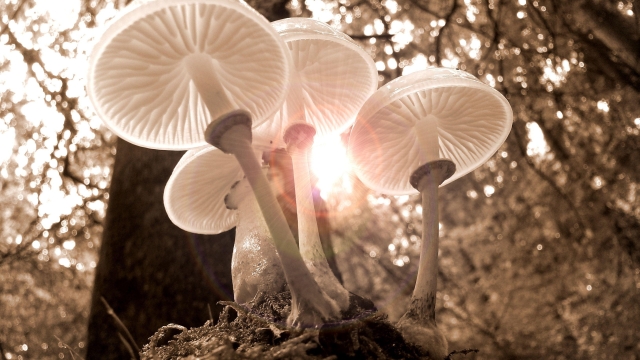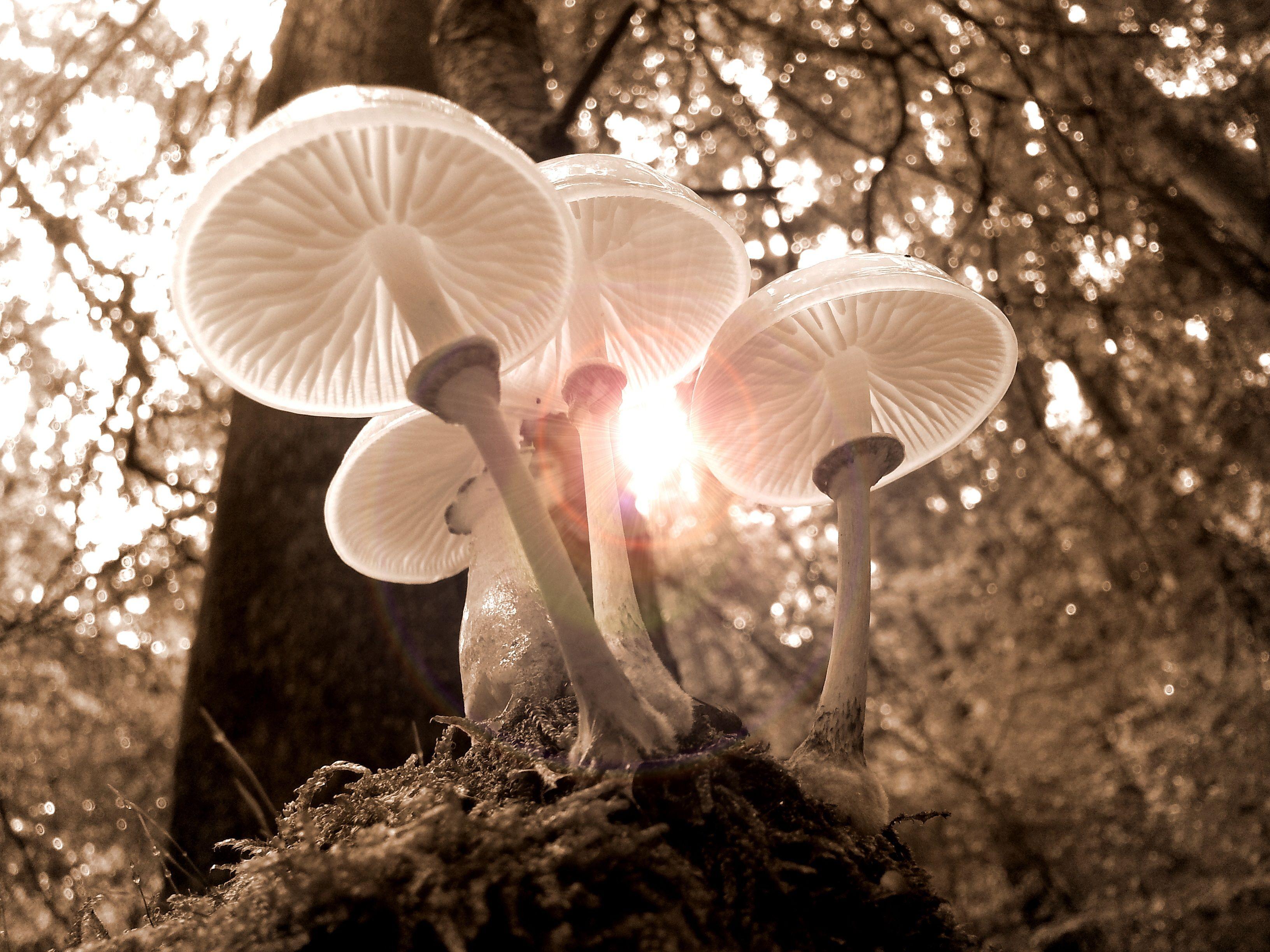
From Fungi to Feasts: Unleashing the Magic of Mushroom Growing
- by Jose Bryant

Mushrooms, with their earthy flavors and versatile textures, have long captivated our taste buds. From delicate shiitakes to meaty portobellos, these fascinating fungi have found their way into a myriad of culinary creations. But have you ever considered growing your own mushrooms? The art of mushroom cultivation, known as mushroom growing, allows you to experience the magic firsthand as you turn a humble spore into a bountiful harvest of delectable delights.
Embarking on the journey of mushroom growing is akin to unlocking a hidden world filled with wonder and possibility. It is a process that combines science and a touch of intuition as you navigate the intricacies of mushroom cultivation. Starting from humble origins, mushroom spores are nurtured and encouraged to grow under carefully controlled conditions, transforming into mycelium, the vegetative part of the mushroom. From there, the mycelium weaves its intricate network, consuming organic matter and establishing a foundation for the emergence of fruiting bodies – the mushrooms we know and love.
With a multitude of mushroom species available for cultivation, each possessing its own unique flavor and characteristics, mushroom growing offers an opportunity for culinary exploration. Imagine the satisfaction of plucking fresh mushrooms from your own indoor mushroom farm, or cultivating a wild patch of edible mushrooms in your backyard. Beyond the realm of flavor, mushrooms also offer a range of health benefits. Rich in essential nutrients, packed with antioxidants, and known for their immune-boosting properties, mushrooms are a powerhouse of goodness that can contribute to a well-rounded diet.
So, if you’re ready to embark on the fascinating journey into the realm of mushroom growing, join us as we delve into the secrets and techniques that will unleash the magic of cultivating your very own fungi feasts. Whether you’re a budding enthusiast or a seasoned grower, this article will provide you with the knowledge and inspiration to unlock the full potential of mushroom cultivation. Get ready to witness the awe-inspiring transformation from spore to feast, as we explore the world of mushroom growing and all its captivating wonders.
Choosing the Right Mushroom Varieties
When it comes to mushroom growing, selecting the right varieties is crucial. With a diverse range of mushrooms to choose from, each offering unique flavors and textures, it’s important to consider your preferences and the specific growing conditions you have available.
-
Button Mushrooms: Button mushrooms are a popular choice for beginners in mushroom cultivation. They have a mild flavor and a firm texture, making them versatile for use in various dishes. These mushrooms thrive in a controlled indoor environment with temperatures ranging from 55 to 60°F (12 to 16°C).
-
Shiitake Mushrooms: Known for their rich and savory flavor, shiitake mushrooms are a culinary favorite worldwide. They require a slightly warmer environment compared to button mushrooms, with temperatures around 65 to 75°F (18 to 24°C). Shiitakes can be grown both indoors and outdoors, depending on your preference and available space.
-
Oyster Mushrooms: Oyster mushrooms are prized for their delicate, nutty flavor and velvety texture. They are relatively easy to cultivate and can be grown on a variety of substrates, including straw, sawdust, or coffee grounds. Oyster mushrooms prefer slightly cooler temperatures, ranging from 55 to 65°F (12 to 18°C).
By considering the characteristics of different mushroom varieties and matching them with the suitable growing conditions, you can set yourself up for success in the fascinating world of mushroom cultivation. Experimenting with different varieties will not only broaden your culinary possibilities but also offer you a deeper appreciation for the magic of mushroom growing.
Creating the Perfect Growing Environment
To successfully cultivate mushrooms, it is crucial to create an optimal growing environment. Various factors influence the growth and development of mushrooms, including temperature, humidity, and light. By carefully controlling these conditions, you can unleash the full magic of mushroom growing.
First and foremost, temperature plays a vital role in mushroom cultivation. Different mushroom species have specific temperature requirements for optimal growth. Generally, a range of 18-24 degrees Celsius is considered suitable for many varieties. Maintaining a consistent temperature within this range throughout the growing process is essential to ensure healthy and robust mushroom growth.
In addition to temperature, humidity is another critical aspect to consider. Mushrooms thrive in a high humidity environment, typically ranging from 75-90%. To achieve this, you may need to use a humidifier or regularly mist the growing area. Adequate humidity ensures that the mushrooms can absorb moisture and develop their characteristic shape and texture.
While mushrooms do not require direct sunlight for growth, they do need some amount of indirect light. Light helps trigger the mushrooms’ natural circadian rhythm, which affects their growth and fruiting patterns. Providing a light source with a low intensity, such as fluorescent or LED lights, can simulate natural daylight and promote healthy mushroom development.
By balancing temperature, humidity, and light, you can create the perfect growing environment for your mushrooms. Remember to monitor these factors closely and make adjustments as needed throughout the cultivation process. With an optimal growing environment, you’ll be well on your way to experiencing the enchantment of mushroom cultivation.
Harvesting and Enjoying Your Homegrown Mushrooms
In order to fully enjoy the fruits of your labor in mushroom growing, it is important to know when and how to harvest your homegrown mushrooms. Harvesting at the right time ensures that you get the best flavor and texture from your mushrooms.
When it comes to harvesting mushrooms, timing is key. Each type of mushroom has its own specific growth cycle and optimal harvesting time. It is important to do some research or consult a guide to determine when the mushrooms you are growing are ready to be harvested. Generally, you want to harvest them when the cap has fully opened but before the gills start to release spores.
To harvest the mushrooms, gently twist or cut them at the base of the stem using a clean knife or pair of scissors. Avoid pulling them out, as this can damage the mycelium and impact future yields. It is important to handle the mushrooms carefully to avoid bruising or damaging them, as this can affect their quality.
Once you have harvested your mushrooms, waste no time in using them to create delicious feasts. Whether you sauté them with garlic and butter, add them to soups or stews, or use them as a flavorful topping on pizzas or salads, the possibilities are endless. Enjoy the unique flavors and textures that your homegrown mushrooms bring to your culinary creations, and savor the satisfaction of harvesting and enjoying the literal fruits of your labor.
Remember, mushroom growing is not just about cultivating these amazing fungi, but also about discovering new ways to incorporate them into your meals and enhancing your dining experience. So roll up your sleeves, get ready to harvest, and let the magic of mushroom growing continue to unfold in your kitchen.
Mushrooms, with their earthy flavors and versatile textures, have long captivated our taste buds. From delicate shiitakes to meaty portobellos, these fascinating fungi have found their way into a myriad of culinary creations. But have you ever considered growing your own mushrooms? The art of mushroom cultivation, known as mushroom growing, allows you to experience…